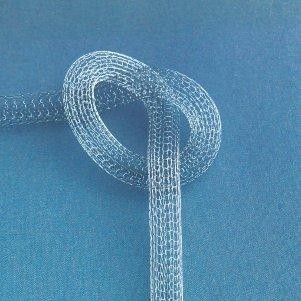GAINESVILLE - Northeast Georgia Medical Center (NGMC) is the first hospital in the country to implant new technology that could improve the quality of life for patients who need heart bypass surgery.
The first implant was performed on February 5 by J. Alan Wolfe, MD, and A. Daniel Winston, MD, cardiovascular surgeons with Northeast Georgia Physicians Group Cardiovascular & Thoracic Surgeons. The procedure was part of an initial feasibility clinical trial recently approved by the U.S. Food and Drug Administration (FDA) to test a new product created by Kips Bay Medical called eSVS® Mesh. A second patient was treated as part of the trial on February 13.
"We are very early in the process and still have a lot to learn, but, if this product performs like many in the clinical world think it will, it could be the biggest game-changer heart surgery has seen in decades," says Dr. Wolfe. "We're talking about improving a basic principle of the way bypass surgery has been performed since the late 1960's."
Heart bypass surgery is typically performed when one or more of a patient's coronary arteries are blocked, which makes it difficult for the heart to pump blood to the rest of the body. The surgeon will take healthy arteries or veins from other parts of the patient's body and attach them to the blocked artery in a way that allows blood flow to "bypass" the blockage.
Saphenous veins are most commonly used to bypass blockages, because they are readily available in most patients, but using them presents two key issues:
1) Saphenous veins are also more likely to degenerate following surgery because they have thinner, less rigid walls than arteries
2) Veins have a normal blood pressure of 10, which is significantly less than the blood pressure of 120 in arteries.
That's where the eSVS Mesh comes in. It's an extremely thin, flexible tube of knitted mesh metal (nitinol) that is placed around the saphenous vein, like a sheath, to make the vein stronger and prevent enlargement. Medical research suggests that the sudden enlargement of the vein bypass graft often results in a buildup of plaque within the graft that ultimately causes it to narrow and stop working.
"Recent studies confirm that as many as 30
Friday
April 26th, 2024
7:11PM









